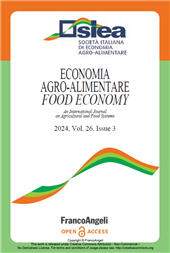The transition of food systems towards sustainability : the role of digitalization
53-69 p.
The paper explores the complex relationship between digital and ecological transitions, particularly focusing on their interdependence and potential to drive sustainability. It acknowledges that digitalization, while offering numerous benefits such as efficiency and scalability, does not inherently lead to sustainability. The text highlights three critical aspects influencing digitalization's impact: the design of digital solutions, access to these solutions, and the complexity of systems integrating digital technologies. Challenges such as the risk of exacerbating inequalities and the necessity for comprehensive governance to mitigate negative effects are discussed. The paper also delves into the digital transition within the agrifood sector, emphasizing the contrast between conventional agriculture and agroecological approaches, which prioritize diversity and resilience.
It argues that digital tools can support more sustainable and diverse agricultural practices if correctly aligned with ecological principles. Finally, the text calls for targeted innovation policies to ensure that digital transition contributes effectively to ecological goals, suggesting that a thoughtful and directed approach is essential for realizing the transformative potential of digitalization in fostering a sustainable future. [Publisher's Text].
Fa parte di
Economia agro-alimentare : XXVI, 3, 2024-
Articoli dello stesso fascicolo (disponibili singolarmente)
-
Informazioni
Codice DOI: 10.3280/ecag2024oa17771
ISSN: 1972-4802
PAROLE CHIAVE
- Digitalization, Ecological transition, Digital transition, Twin transition, Transformative innovation


